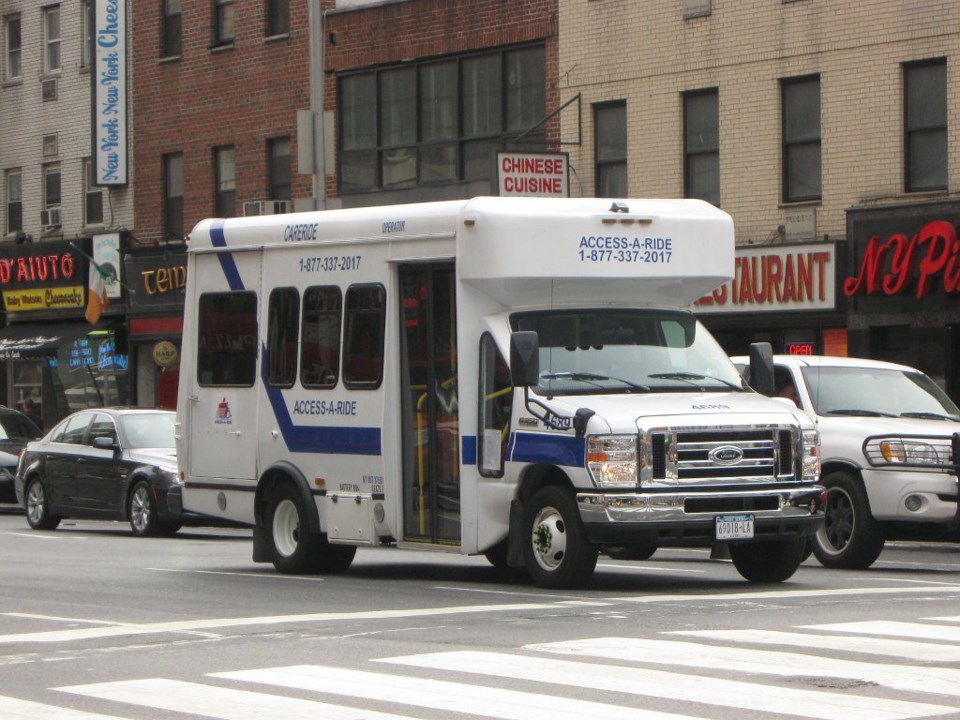For the average New York citizen, the transportation options seem plentiful and fairly effective. Despite consistent efforts to make the Metropolitan Transportation Authority an all-inclusive public offering, certain individuals with disabilities or handicaps are often left behind. The addition of elevators and ramps throughout the NYC stops have broadened the horizons for these travelers but it wasn't until 1990 when the Americans with Disabilites Act (ADA) was finally enacted that concrete solutions were provided to the community.
Under the ADA, the city was required provide a Paratransit system for passengers with disabilities who are unable to use public bus or subway service. This imperative program was aptly named Access-A-Ride (AAR), as thousands of residents were offered shared rides and door-to-door Paratransit service in the city as well as in limited parts of Nassau and Westchester County. In order to broaden the scope of their reach, the program operates 24 hours a day, seven days a week, including holidays.
According to an audit report of this program that was released to the public on May 17th, there were over 31,000 instances in 2015 where New York City residents properly booked a ride through the AAR system and the vehicles never showed up to provide transportation services.
"In a city that prides itself on its diversity, tolerance and accessibility, the Access-A-Ride program is an affront to all New Yorkers. The MTA needs to respect the civil rights of all riders, bring this program into the 21st century and get serious about actually fixing what's wrong. Everyone deserves a fair shot to make it here, but when this program fails to work for everyone, we can't fulfill that promise," New York City Comptroller Scott Stringer said in a statement released after the audit was published.
It's important to note that the Access-A-Ride program provides service via their network of Dedicated Service Contractors and a Broker Car Service. Through these contracts, Paratransit paid over $321 million for close to 6 million trips for NYC residents.

According to the City Agency Audit Report, both contractors agreed to have Global Positioning System devices installed in all of the service vehicles in order to track their customer service, timing, and ride quality. These GPS systems were poised to offer concrete performance numbers to help measure and maintain standards. Under this system, Paratransit simply failed to monitor the installation of these GPS devices and did not use that data to accurately measure the driver's performance.
Instead, Paratransit relied primarily on contractors' self-reported trip and vehicle data, which was often inaccurate, incomplete, or simply false. In a sample of the rides, auditors found that almost three-quarters of the time, Access-A-Ride bus or car providers had misrepresented data or input fake data to confirm customer pickups.
While the lack of consistency is appalling from a contractual standpoint, the disservice to the citizens who desperately need this transportation is far more unsettling. The detailed report and the auditor's long list of recommendations were made available for Paratransit as early as April 29 of 2016. As of today's date, Paratransit has not released a formal response to the audit or a plan to implement new strategies.



